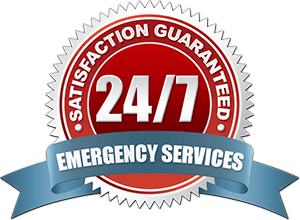
5 Tips To Detect Leaks In Deck In San Diego
Decks are a wonderful addition to any home, providing a space for outdoor relaxation, entertainment, and family gatherings. However, over time, decks can develop leaks that, if left unattended, can lead to significant damage and costly repairs. Detecting leaks early is crucial to maintaining the structural integrity of your deck. In this article, we will share five essential tips to help you detect leaks in your deck and prevent potential problems down the line.
-
Regularly Inspect the Surface
Regular inspections are the first line of defense against deck leaks. Begin by thoroughly examining the surface of your deck. Look for any signs of water pooling or puddling, as these are indicators of improper drainage. Pay close attention to any cracks, gaps, or holes in the deck’s surface, as these can allow water to seep through and damage the underlying structure. Inspect the deck after heavy rain or snowfall, as this is when leaks are most likely to occur.
-
Check for Soft or Spongy Spots
One of the telltale signs of deck damage and potential leaks is the presence of soft or spongy spots when you walk on the deck. If you notice any areas that feel unusually soft underfoot, it could be a sign of water damage. Probe these areas carefully to assess the extent of the damage. Soft spots may indicate that water has penetrated the deck’s surface and compromised the structural integrity of the wood. Address these areas promptly to prevent further deterioration.
-
Inspect the Joists and Beams
Leak detection goes beyond the deck’s surface. It’s essential to inspect the deck’s supporting structure, including the joists and beams. Check for any signs of rot, decay, or water damage in these critical components. Use a flashlight to get a closer look in dark or concealed areas. If you discover any issues, it’s crucial to address them immediately to prevent the deck from becoming unsafe.
-
Seal Gaps and Cracks
If you find gaps, cracks, or holes in the deck’s surface during your inspection, it’s essential to seal them promptly. Water can easily seep through these openings and cause damage to the underlying structure. Use an appropriate sealant or filler to close gaps and cracks. Be sure to choose a product that is suitable for your deck’s material, whether it’s wood, composite, or another type of decking. Regularly resealing your deck can also help prevent future leaks.
-
Maintain Proper Drainage
Proper drainage is crucial for preventing water buildup and potential leaks. Ensure that your deck has a well-designed drainage system that directs water away from the structure. Clean out any debris or blockages in the gutters, downspouts, and drainage channels regularly. If you notice water pooling on your deck, consider installing slope adjustments or adding a waterproof membrane to the surface to improve drainage.
FAQs
Can I Use A DIY Waterproofing Product To Fix Deck Leaks?
While some DIY waterproofing products are available, it’s essential to choose the right product for your deck’s material and follow the manufacturer’s instructions carefully. For significant leaks or extensive damage, it’s often best to consult a professional to ensure the job is done correctly.
How Often Should I Inspect My Deck For Leaks?
Regular inspections are essential. It’s a good idea to inspect your deck at least once a year, and more frequently after heavy rain or snowfall. Prompt detection and repair can save you from costly damage in the long run.
What Signs Indicate That My Deck’s Structure May Be Compromised Due To Leaks?
Signs of structural damage may include soft or spongy spots on the deck’s surface, visible rot or decay in the joists and beams, and noticeable sagging or instability in the deck. If you notice any of these signs, it’s crucial to address the issue promptly to ensure your deck’s safety.
Conclusion
Call 1st Response Leak Detection at (619) 374-8554 right away to set up an interactive consultation with one of our experts.
Call the experts of 1st Response Leak Detection at (619) 374-8554 to avail of our leak detection services in San Diego, CA.



